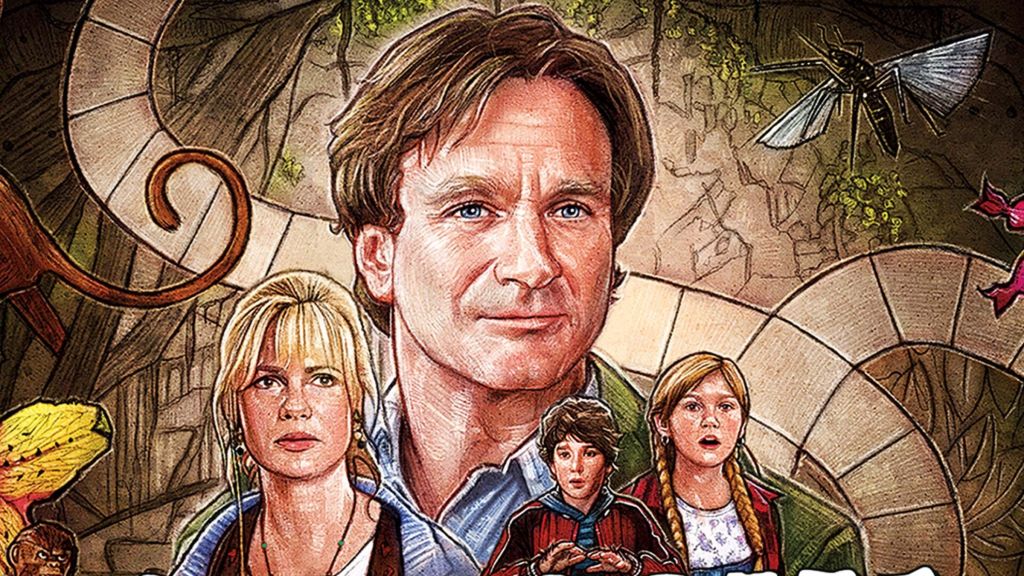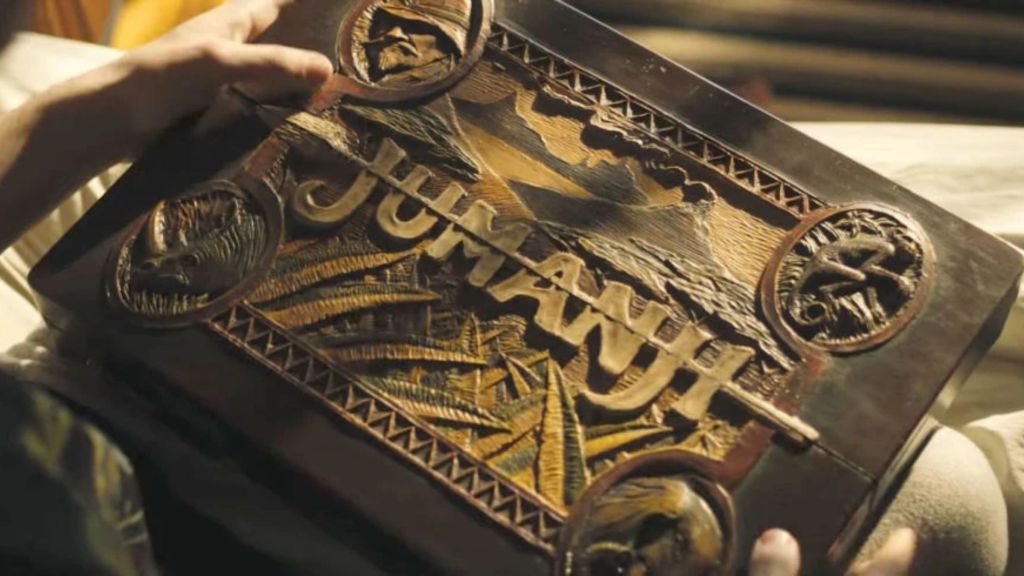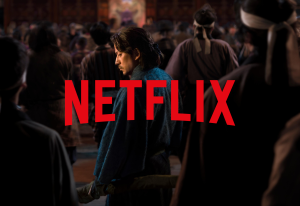Hard as it may be to believe, the first Jumanji movie came out over 30 years ago. The childhood classic featuring Robin Williams was first released in 1995, opening the door to a new fantasy adventure unlike any viewers had ever seen before. Not only did this inspire an animated series, but many years later, fans would be graced with a return to the franchise with new characters and stakes. However, the continued appearance of Jumanji may have raised questions among some fans, such as how people keep getting tricked into playing this board game and why. Thankfully, one fan theory may explain both questions.
Videos by ComicBook.com
Jumanji was based on a children’s picture book by Chris Van Allsburg. The first film starred Robin Williams, Kristen Dunst, and David Alan Grier, among others. The franchise came back to life in 2017 with Jumanji: Welcome to the Jungle, starring Dwayne Johnson, Jack Black, Kevin Hart, Karen Gillan, Nick Jonas, Bobby Cannavale, and Rhys Darby. A surprising cast, to be sure. What’s more surprising is that they would return for Jumanji: The Next Level, not to mention a third movie officially being in the works.
[RELATED: New Jumanji Movie Dated by Sony, Cast Confirmed]
The High Stakes Game of Jumanji

At this point, most people understand the stakes and rules of Jumanji – once you start playing the game, you have to finish. It doesn’t matter how badly you want to quit; you’re not free of the game until the final dice have been cast. This was made abundantly clear during the first movie, as Alan disappeared into the game for 26 years before the game could continue. The same occurs in Jumanji: Welcome to the Jungle, as Alex’s character disappears for 21 years before a new group joins in to (unintentionally) help finish the game.
One could argue that the similar nature of these events could be a coincidence or an intentional hat-tip. However, one Reddit user, has a different theory to explain all of the coincidences, and it helps to explain how the game works to boot. In their theory, they point out that the themes of Jumanji have a lot in common with mythological tales of gods, worship, and pacts. They went on to argue their point by explaining that the game is likely powered by an ancient trickster god, forcing people to sacrifice for the game (in their name) and even calling out their name before being declared a victor.
[RELATED: Jumanji Director Addresses Why Kirsten Dunst Has Never Returned for Sequels]
Follow the Instructions to Receive a Reward

The more we think about this theory, the more it makes sense. If Jumanji is a game created by an ancient being, it stands to reason that they’d be doing everything possible to keep their name (and their power) alive. Thus, tricking people into the game is an obvious first step. In the original movie, the board game disguise was all that was needed to trick two different groups of kids into the game. For the modern version, the game had to update accordingly, becoming a video game cartridge. This is an excellent contemporary example of what a trickster god could achieve.
Taking the theory a step further, once the players are in a game, they are put through a series of trials – each roll of the dice can bring great torment or require some form of bravery or sacrifice. This is precisely the sort of thing people could picture an ancient god demanding in return for a boon. In all the films, each character has to go through some sort of adventure kicked off by their dice roll, and each time, it results in some kind of sacrifice on their part (though sometimes it’s indirect or unintentional).
Next, let’s discuss the price of cheating. In the first Jumanji movie, Peter attempts to cheat by moving his token forward on the board. He was certainly doing so to try to bring the game to an end, but he paid a price for this. The game punished Peter by partially transforming him into a monkey. He’s still himself, but his outside has been changed – it’s the sort of movie a trickster god would pull.
High Stakes for Hidden Prizes

This theory makes even more sense when looking at Jumanji in a broader sense. At a glance, the rules of Jumanji seem clear and fair – but they’re not! That’s the classic sign of a trickster. Fate can mess with players, destroying chances at victory, dooming others, and causing unpredictable mayhem for everyone involved. Likewise, while there are ways to escape the game, unless the player actually completes the game (the ritual?), they will remain forever marked.
Finally, we must acknowledge how the game ends. The game of Jumanji only ends when somebody wins, and like the rules of Uno or Bingo, that implies calling out the game’s name, Jumanji! Given all the evidence we’ve already discussed, it feels oddly fitting that a god so full of demands would likewise be insistent that the victor scream its name in victory.
Whether this theory is correct or not, there is something amazingly compelling about it. It holds water, and we would love to see how the next installment in the franchise supports or disproves it.
Jumanji is available to stream on Hulu and Disney+, while Jumanji: Welcome to the Jungle is available on Max.








